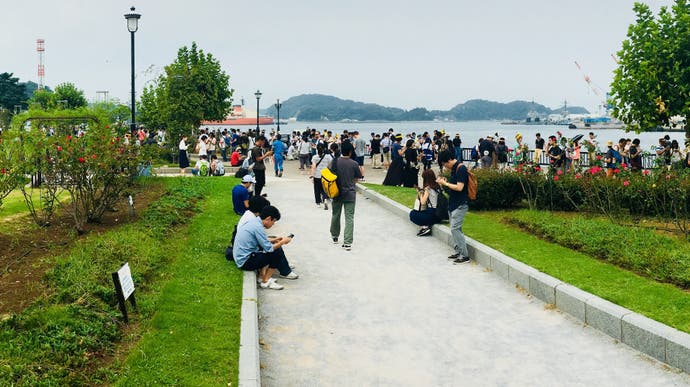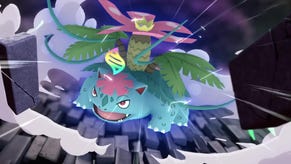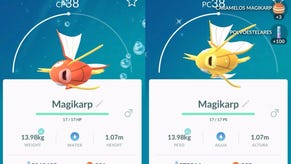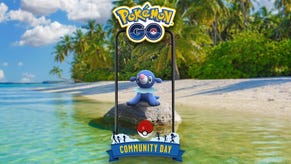Pokémon Go on the other side of the world
Trading places.
Towards the end of my trip to Yokusuka, I spot a tired-looking guy shuffling along the street. He's in his late thirties, walking with a friend along the town's seafront, past the huge naval ships moored up on the edge of Tokyo Bay, the Pacific Ocean beyond. He stands out from the crowd - the hundreds walking by, staring at their phones - because of the sign he's holding. He's Japanese, but the sign's words have been carefully inked in English on a white piece of cardboard, attached over his shoulders via a short length of string. As he draws closer, I know I have to say hello.
Yokosuka, just along the coast from Japan's capital, is known for two things: it's home to the largest US Navy base outside the US (expect lots of burger joints and curry houses) and it's the setting of Dreamcast classic Shenmue. I was here for another reason, though - a reason which has seen me travel to Dortmund, Germany and Chicago, USA over the past six weeks: yes, I was playing some more Pokémon Go. This week, Yokosuka is home to the last of the game's three big summer events - another Safari Zone, a catch 'em all festival with rare and unique in-game creatures to snag. Entry was free but ticketed to minimise stampedes, and limited to just one day's play to ensure as many people as possible got a turn.
The event is something of a hybrid of the two which came before. Once again, it featured a travelling regional-exclusive Pokémon (Tropius, usually only found in Africa), as well as a new Shiny type (Wingull, so far only released here in Japan) and a bunch more Unown letters perfect for people (hello!) getting close to finishing their alphabet collection. And alongside all of that were scores of other uncommon types (Slakoth, Beldum, Ralts) to hoover up for candy. In all of this, it was like the Safari Zone in Dortmund, but being a ticketed event like Chicago meant the game could hide these attractions in a layer visible only when you scanned in a unique ticket code at the event itself. Like Chicago, this ensured the area never felt too crowded and all phone networks behaved themselves. In-game, it also unlocked a short questline to follow with a checklist of tasks for valuable in-game rewards, once again led by brainy hunk Professor Willow.
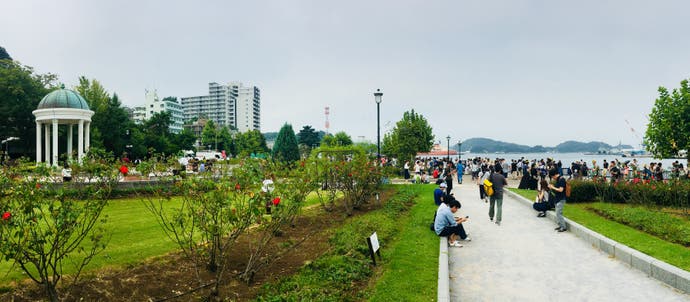
The event is designed primarily for the game's huge Japanese audience - Yokosuka is a very, very long way to travel simply for a few rare Pokémon creatures, though I found a couple of American and Canadian tourists who had made the trip. Regardless, unless you're fortunate enough to speak Japanese, it can be a challenge to get around - the Tokyo metro system is always an adventure - and the heat of Japan in summertime is something else. Yokosuka today was a toasty 35C warm, though it's the region's sweat-through-your-clothes-in-five-minutes greenhouse humidity that will really get you.
And yet despite the distance, the heat and everything else, it was the fact I was here to play Pokémon Go which sort of made everything make sense. It's Pokémon Go - the game I play on my walk to and from work every day, that I then use Facebook and Discord to organise raid meetups for after. It's the game I've made good friends playing, the way I've met people after moving to a new town. If you play Pokémon Go - and this is especially evident with its recent addition of a friend list and social features - it's very easy to feel part of a community.
I've written before about how something familiar can make you feel at home even when you are very far from away it - somewhat fittingly, it was about visiting the Pokémon Centre store in Tokyo the first time I travelled to the city four years ago, when everything was a complete culture shock. That feeling of recognition, even when abroad somewhere you've never been before, is a feeling I got again today. Everyone in Yokosuka was engrossed in the buffet of riches on offer to catch, hatch and interact with. We were all hunting the same things - Shiny Wingull, that last Unown letter - all there with the same focus.
Well, almost the same focus. Because if you do live in Japan, like that guy I spotted with the cardboard sign, you may not have the same Pokémon as someone from the UK, like me. The ability to trade Pokémon arrived in the game shortly before Dortmund, and it was there I saw the first of these home-made signs in the wild. Back in Germany, Tropius was the most prized trade, and I spotted a couple of people who had taken the initiative to physically advertise what they needed by writing it out and carrying it around. In Japan, halfway around the world, here was someone else doing the same.
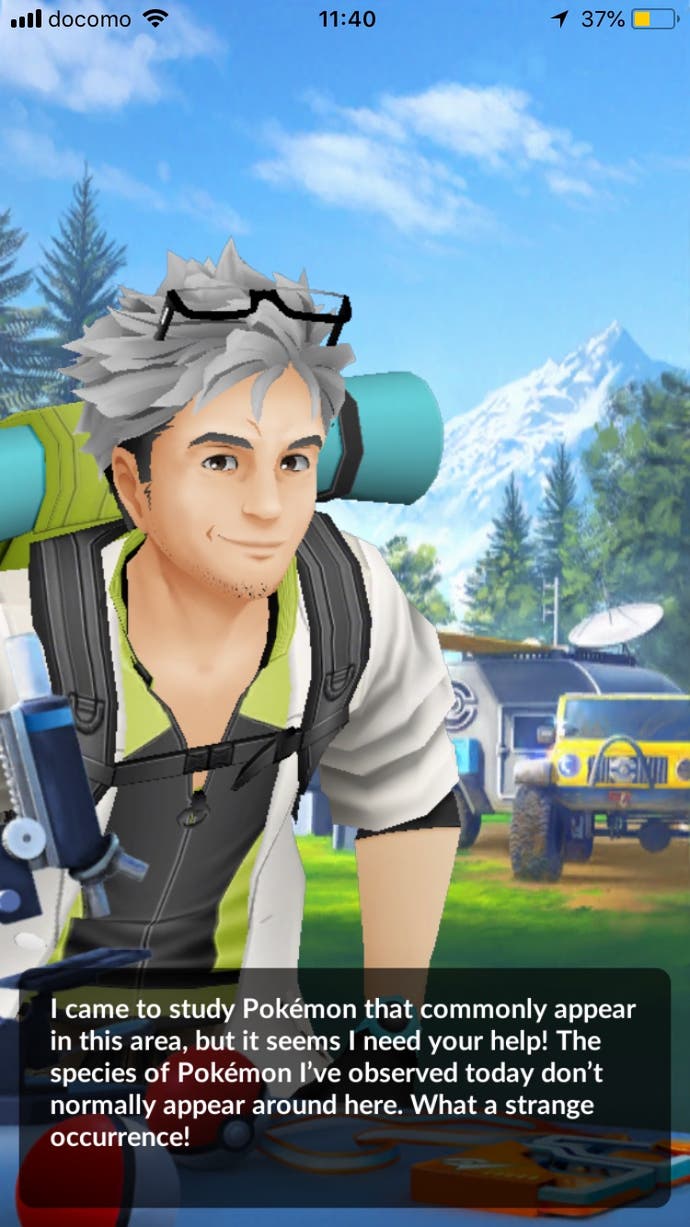
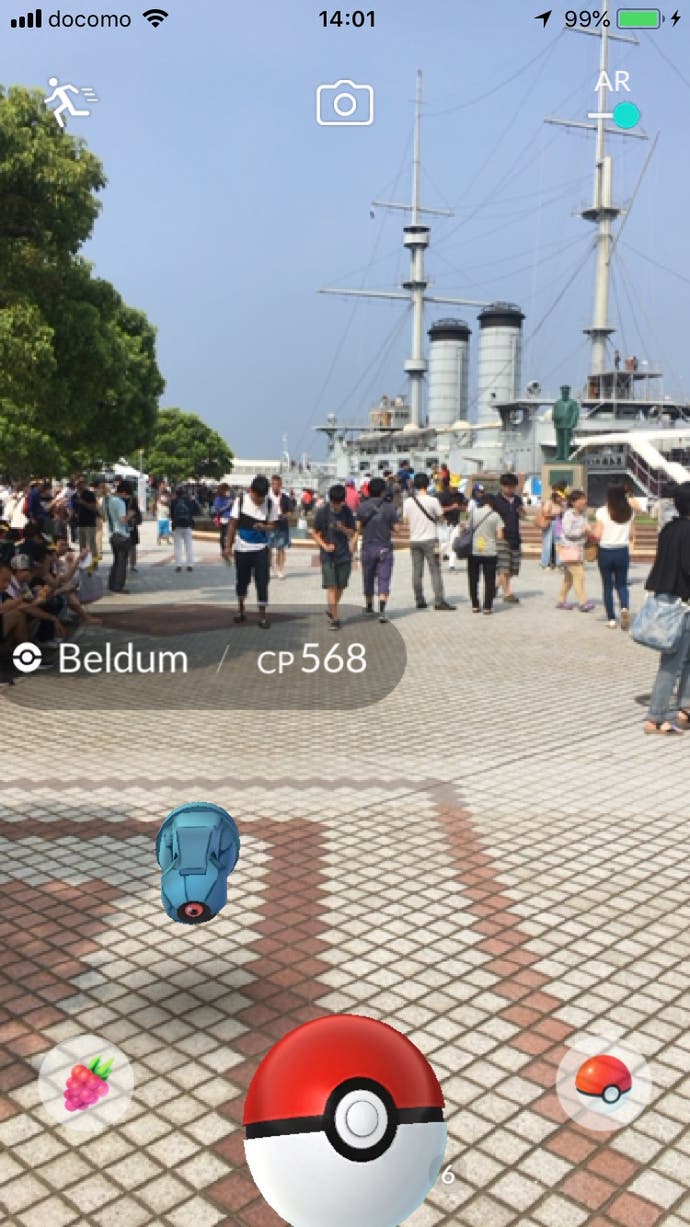
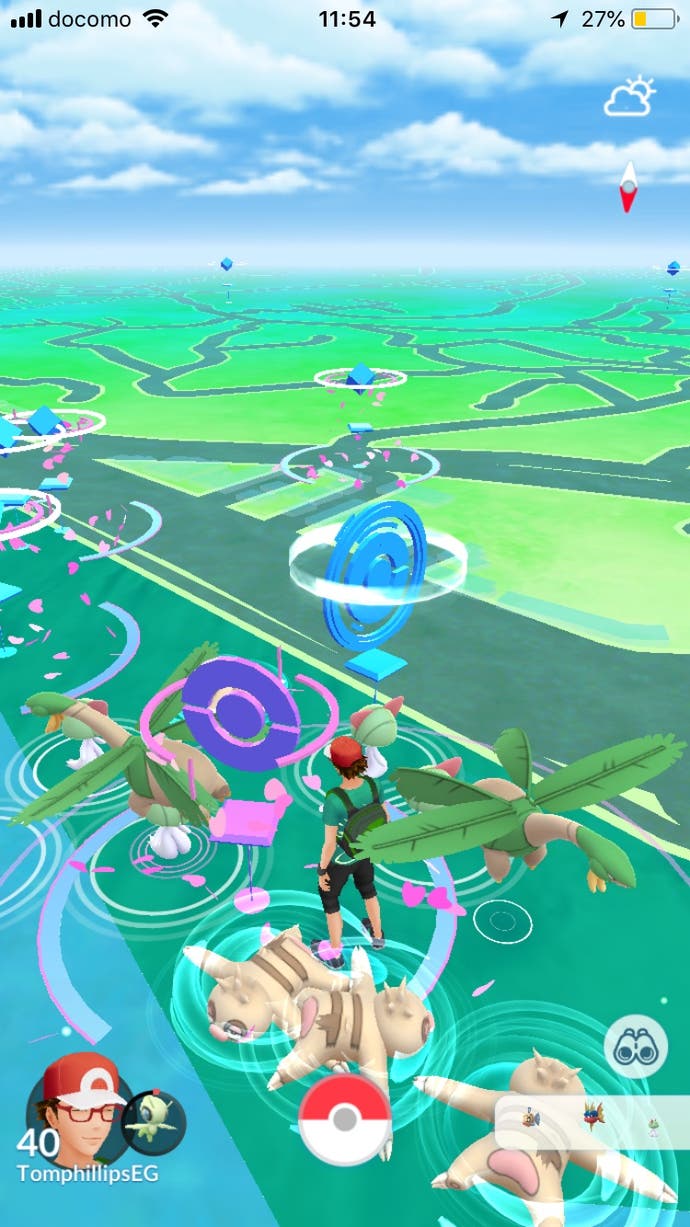
I beckon him over. The sign he's wearing simply says: "Heracross, Relicanth, Tauros trade? Please!" Here in Japan, it is the game's American and New Zealand exclusives which seem hardest to get. I don't have a spare Heracross or Relicanth to offer, but I do have a Tauros up for grabs, I explain - by pointing to the word Tauros on his sign and hoping he understands. He doesn't speak English, I don't speak Japanese, but with a lot of thumbs up signs and saying "okay!" we're able to swap Trainer Codes and exchange a gift to unlock trading between us. I see from his Pokédex that Tauros is the last Pokemon he needs from the game's original 151 creatures - and suddenly I realise he is getting a little emotional that I spotted him and agreed to the trade he wanted most. Meanwhile, his friend is taking photos of it all.
I have spare Tauros from my trip to Chicago's Go Fest, but what did I want in return? "Unown?" I ask, as he begins to search through his collection and find an Unown letter I didn't yet have. "J!" I spot. "J?" he asks. "J," I nod excitedly. We progress to the trade screen. "Okay?" I say one last time, eyeing up the Stardust cost for our trade. It was definitely worth it. "Okay," he nods, giving another thumbs up. Trade done. We thank each other, shake hands, me grinning simply at how delighted he looked, and how this interaction with a perfectly random stranger had occurred.
On the train afterwards, I look through my catches from the day and begin letting friends back home know what I've caught. I'm looking forward to the next trade, and passing some of Yokosuka on.
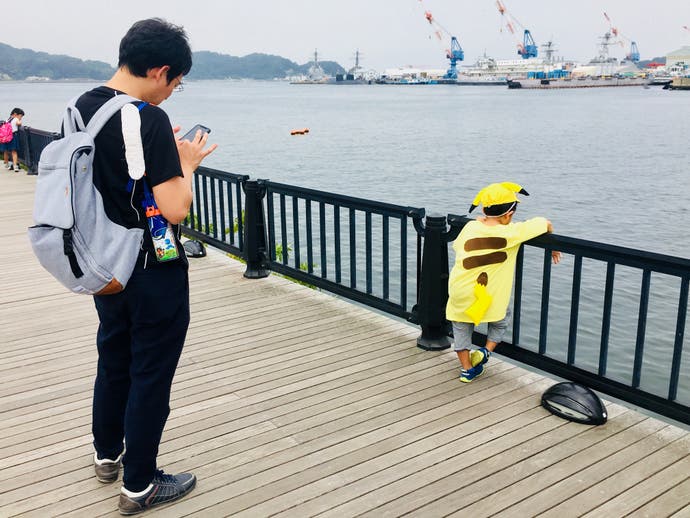
This article is based on a trip to Yokosuka. Niantic covered travel and accomodation.
